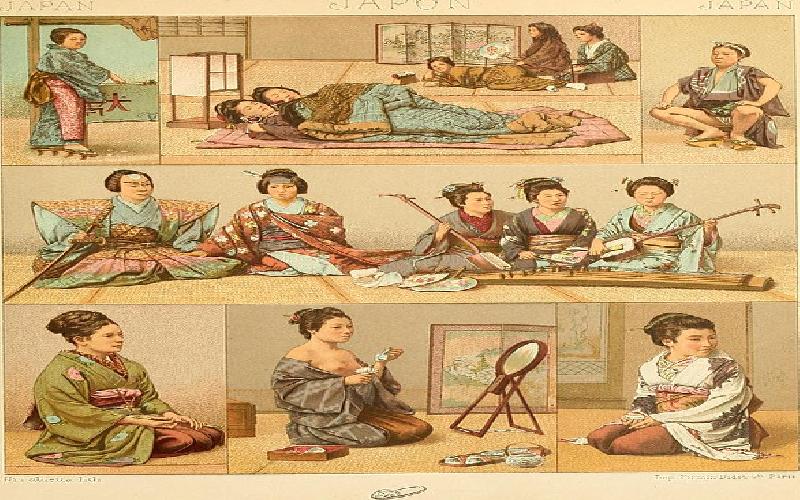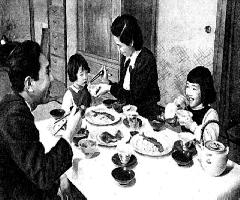Japan is one of the most intriguing places on this planet. A nation as modern as the Western world and economy that competes with them in every manner, it is a society that carries a complex legacy with Western world, and has remained in spite of the various Western facets that it has adopted. A unique society!
Complex Social Relationship of Japan with the Western World
The Japanese have nurtured a strange love and hate relationship with the Western world ever since Commodore Mathew Perry of the U.S. Navy arrived with four 'Black Ships' at the Port of Odaiba, the entrance to
modern Tokyo, on July 8, 1853 and forced the Japanese rulers to open its trade to the Western world.A Legacy of Perry’s Gun-Boat Diplomacy
Perry's 'gun-boat diplomacy' consisted of threatening to attack, and his arrival next year ensured the compliance of his request by the Japanese who were wary of American gun power. However, the Harris treaty for trade that forced Japan to fix a universal rate of 5% trade duty on all international trade, was considered a national disgrace, that ultimately lead to a kind of revolution that is known as 'Meiji restoration' in history. But what followed thereafter was a persistent pursuit by the Japanese nation to match the Western world in all respects. It was a strange approach, because on one hand the Japanese hated the Westerners, while on the other hand they admired them for their developed, progress and power, and aspired to be equal to them one day.
Westernization in Japan
The process of Westernization in modern Japan is also reflective of this very reality and inherent conflict. The choice of superficial Western symbols has been more than offset by the passionate self respect for everything that is Japanese, and the adoption of modern Western Sciences and Technology has taken place with an almost religious devotion to their own language.
At least part of the Westernization in Japan has been the result of conscious efforts. Japan established its first Engineering colleges in 1850's, with all European teachers, who were selected by one of its high powered delegation, and lured to teach in Japan with salaries that were higher than those of any civil servant or Minister in those days. The Japanese fascination for Westerners is also reflected in stories of Japanese girls being encouraged to cohabit with the visiting Westerns to improve the Japanese race.
The Western Impact in Japanese Culture
There are certain aspects of Japanese culture where Westernization has fully encroached. The most important of them is dress. It is rare today to find people, male or female, wearing tradition Japanese dress. Finding many ladies in kimono, in Tokyo, is one of the surest signs of some Japanese festival being celebrated, or a performance of Japanese folk dance being planned in the neighborhood. During my stay there, I enjoyed watching such public performances organized at business centers like the Tama Center, but they were probably the only occasions I saw many ladies wearing Kimono. Most Japanese work and the dress at the workplace is always the Western dress. The youngsters invariably prefer Western dresses and fashion, although I must say that their hairstyles are often very unique, inspired more by the Japanese animation industry and not really Western in appearance.
Their apartments are also changing to Western apartment style. Traditionally, Japanese apartment is typically a small place, with wooden floors, having arrangements of sitting and sleeping on floor, with minimum though elegantly maintained furniture. Even in today's Tokyo, most Japanese apartments are still like traditional Japanese houses,
but now more and more large Western apartments with Western styled furniture are coming up, often costing a fortune. Traditionally, Japanese homes often did not have showers, but most modern apartments have all such facilities.Traditional Japanese Culture Still Holds its Own
There are many other areas in which Westernization has arrived, but not been able to make a real dent in the Japanese tradition. Most important of these are the Japanese food, and language. Though most malls in Tokyo, Nagasaki, Yokohama or any other Japanese city will have restaurants from all over the world, the Japanese still prefer the Japanese food only, to the extent that all other cuisines either lose their flavor or survive only in a continental form. The preference of Japanese for their own food is evident in the relative pricing - the traditional Japanese food costs the maximum, while Big Mac is still one of the cheapest meals available anywhere in Tokyo. The Japanese still prefer their own wine - the sake, even though all forms of Western wine is freely available and not costly compared to Sake.
The Dilemma of English Language
One area where Japanese have tried their hardest to imitate Westerners and failed is language. On Japanese TV one can see several programs teaching various English and other European languages. Native English speaking abilities can be a reliable insurance against unemployment in Japan - so much is the demand for English teachers - yet few Japanese have attained mastery in speaking English, a phenomenon that I cannot explain in any other way, except by blaming it on their love for their mother tongue that mentally does not allow them to shift to another language.
Philosophically Least Westernized
The real essence of culture is not in superficiality, but in the traditional philosophy, and it is this area in which Japan is probably the least Westernized societies of the world. Japanese people continue to retain their values of Confucianism, and social harmony, that is more than reflected in many of their business practices like life-long employment, negotiated decision making and a unique emphasis on loyalty to the employer. Many of these practices were actually imported in the form of Japanese management systems to the rest of the world after their success in the 1980s.
Uniqueness of the Kaisha-centric Japanese Society
The society in modern Japan centers around the 'kaisha' or the company -referring to the organization where Japanese work, and individuals are considered secondary to the kaisha. The performance of individual therefore carries far lesser weight than the organizational performance, and this tradition creates significant peer pressure on everybody to devote his best to the company.
Modern Japanese society appears Western by dress, speaks its own language, eats its own food and follows its own traditions, yet the homogeneous society is not as homogeneous as its used to be and the Western individualism is gradually encroaching it, though I must add that I cannot yet foresee any takeover of Japanese culture by Westernization.
This unique society is likely to remain Japanese in any foreseeable future.










